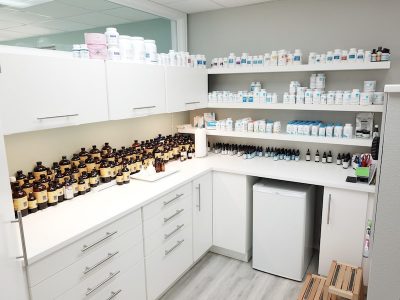Many doctors have realized that their training failed to provide them with the tools necessary to address chronic conditions and ailments with something other than giving band-aid solutions, such as medications and surgeries. Medical doctors typically study nutrition for 1-2 hours in their entire degree program. There is a growing number of medical doctors, who have sought training outside of their residencies and degree programs to help them treat patients conditions from the root cause rather than simply treat symptoms. These doctors are now calling themselves Functional Medicine doctors.
 Naturopathic doctors have been trained for over 100 years to treat and see the depth of an illness from its origin. It is the paradigm under which we were taught: find the cause of the disorder, address that, and the symptoms will all go away. Naturopathic medicine’s deep roots in dietary, botanical, and homeopathic interventions and the belief that the body can heal itself once obstacles are removed allows naturopathic physicians to address conditions for which only superficial treatments are found in the conventional model. Naturopathic doctors are trained in a 4 year degree program requiring a pre-med background and often a residency. Naturopathic doctors are board certified and are required to complete 25-35 hours of continuing education every year, depending on which state they live in.
Naturopathic doctors have been trained for over 100 years to treat and see the depth of an illness from its origin. It is the paradigm under which we were taught: find the cause of the disorder, address that, and the symptoms will all go away. Naturopathic medicine’s deep roots in dietary, botanical, and homeopathic interventions and the belief that the body can heal itself once obstacles are removed allows naturopathic physicians to address conditions for which only superficial treatments are found in the conventional model. Naturopathic doctors are trained in a 4 year degree program requiring a pre-med background and often a residency. Naturopathic doctors are board certified and are required to complete 25-35 hours of continuing education every year, depending on which state they live in.
Functional medicine is becoming popularized because patients are seeking help from providers, who have a more extensive knowledge of alternative approaches to helping patients heal. Patients recognize that the deficiencies in conventional medicine lead them to wanting more individualized help and more help sustaining their health.
With over 70% of chronic disease having a lifestyle behavior as its cause, we need doctors who can speak to these lifestyle choices and help patients redirect their behaviors toward preventative choices. Drug development and research funding allocated to creating more pharmaceutical interventions are the opposite of what patients need. Patients are not struggling with a Metformin deficiency, with a Lexipro deficiency, or with a deficiency of anti-inflammatory mediators. Patients are needing support and guidance for how to live their lives more healthfully and are looking to their health care providers for strategies to stay well.
